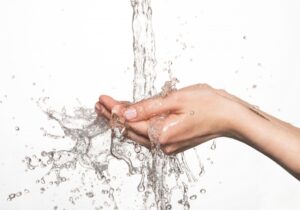 When you imagine all the things that might go wrong with a plumbing system, hard water is probably not one o your concerns, right? After all, things like a clogged toilet, a leaky faucet, or a burst pipe—those things are emergencies… “hard water” doesn’t even make a “top 10” list of worst plumbing problems to have.
When you imagine all the things that might go wrong with a plumbing system, hard water is probably not one o your concerns, right? After all, things like a clogged toilet, a leaky faucet, or a burst pipe—those things are emergencies… “hard water” doesn’t even make a “top 10” list of worst plumbing problems to have.
But what many homeowners don’t realize is that hard water can be a bigger deal than they really give credit to. Below, we’ve dived into the problem of hard water, as well as what the solution is. Read on to learn more!
First, What Is Hard Water?
Hard water is simply water with a high concentration of certain minerals in it—namely magnesium, calcium, and sometimes iron. These are minerals you’re familiar with, and are completely harmless for you to ingest—hey in the case of a deficiency these minerals are even good for you.
But they’re not good for your plumbing system! These minerals form into deposits, and while the human body can break them down, your plumbing pipes cannot. Instead, they turn into what you know as limescale, building up inside your pipes and causing water flow issues, and potentially even corrosion.
The Problem with Limescale
There are a number of reasons you should probably worry about limescale. For starters, unsightly faucets and drains, not-so-shiny dishes, and like we mentioned above, damage your plumbing pipes. The more limescale build-up that’s in your pipes, the more it restricts the flow of water through them.
If the problem isn’t caught in a timely manner, the minerals harden, which makes it harder to remove, and eventually, you’ll have to replace parts of your plumbing pipes.
The Solution to Hard Water
The number one way to manage hard water in your home is to have a water treatment system installed—specifically, a whole-house water softener. This is a kind of water treatment system that’s designed specifically to treat harder water. There are different types of water softeners, but the basic premise of such a system is that it operates by neutralizing the magnesium, calcium, and iron particles.
“How Do I Know If I Need a Water Softener?”
There are a number of signs you can watch out for that indicate you may benefit from a whole-house water softener:
- Limescale buildup on faucets and drains
- Watermarks on dishes
- Dry skin after showering
- Faded clothes out of the washing machine
- Clogged showerheads
If you’re ready to address the hard water problem in your household, please don’t hesitate to call our team. Trust us when we say that only a professional plumber has the tools, training, and expertise to match you with the system that’s going to best meet your unique hard water needs.
Be careful about trusting an amateur to install a water treatment system or do any other kind of plumbing work in your home. This can sometimes do more harm than good, and leave you to calling in a professional anyway.
To get in touch with a quality plumber in St. Louis, MO, contact Performance Plumbing today.
